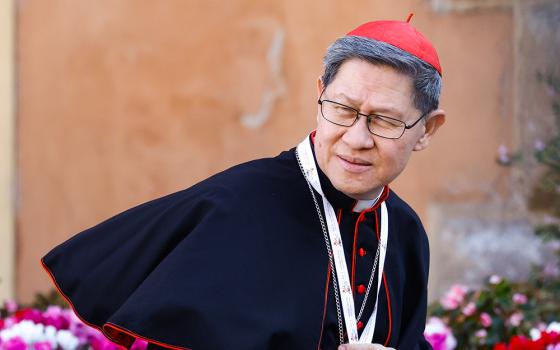Bishop Edward Daly of Derry, known for his tireless advocacy for peace and reconciliation during decades of sectarian tension in Northern Ireland, died in a hospital in Londonderry, Northern Ireland, Aug. 8.
Daly, who retired in 1993 due to ill health after suffering a stroke, was 82. He had suffered from cancer.
The film and photo for Daly waving a bloodstained handkerchief on “Bloody Sunday," when 14 civil rights protesters were shot dead by the British army in Londonderry*, became an iconic image of the violence in Northern Ireland of that era.* For decades, the victims were accused of being terrorists. However, in 2010, an independent inquiry ruled that all the victims and the injured, had been unarmed and that those killed had been killed unlawfully.
Daly worked tirelessly with the families to clear their names and ensure that an independent inquiry would overturn the allegations that they were terrorists.
Irish President Michael D. Higgins expressed "great sadness" at news of Daly's death.
"Edward Daly will be remembered by many for his peaceful, compassionate, humanitarian and courageous actions during the appalling events of Bloody Sunday," he said. "This was but one part of the great contribution that was his life of service to the citizens of Derry, including as it did his leadership in the tasks of regeneration and his work with the hospice movement in the later part of his life."
After Daly was named to the Diocese of Derry in 1974, he campaigned for the British authorities to build houses for the Catholic community and frequently denounced injustices suffered by Catholics at the hands of the authorities. At the same time, he denounced paramilitary violence aimed at British troops and the police in Northern Ireland.
Martin said Daly's bravery was "apparent in his lived conviction that violence from any side during the Troubles was futile and could never be morally justified.
"He was courageous in speaking out against injustice and took many personal risks for peace and reconciliation," Martin recalled.
Bishop Donal McKeown of Derry said his predecessor "served, without any concern for himself, throughout the traumatic years of the Troubles, finding his ministry shaped by the experience of witnessing violence and its effects; through this dreadful period he always strove to preach the Gospel of the peace of Christ."
"Daly provided an example of priestly ministry which was exemplary, inspired by service of God and the people he encountered," McKeown said.
At a national level, Daly was a key member of the Irish bishops' conference and served as its spokesman for many years. In 1975 he established the first Catholic Communications Office. He also helped organize the 1979 papal visit of St. John Paul II.
Pastorally, he took a particular interest in the welfare of prisoners and their families and was a frequent visitor to jails.
Martin said that as a "gifted spiritual leader and communicator, his words touched the hearts of many people, but his ministry was not confined to preaching. He walked with his people in their struggles and joys and was most at home out in the streets, parishes and communities of his diocese.
"Bishop Edward will be remembered as a fearless peacebuilder," the archbishop said.
In retirement, Daly continued to work, ministering in the Foyle Hospice, where he served as chaplain until 2015.
He also published two books of memoirs. He provoked debate in 2011 when he wrote in his latter volume of memoirs that "there will always be a place in the church for a celibate priesthood, but there should also be a place for a married priesthood in the church."
*This story has been updated to correct the spelling of Londonderry, and to clarify a sentence.





